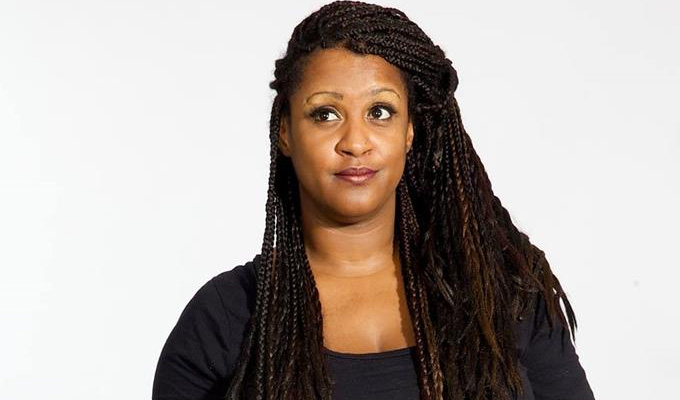I will start this by saying that I am not a victim and I am luckier than most. Which is why I think that it is difficult for people to understand why I am obsessed with the topic of racism and discrimination.
I am from a white suburb in western Canada born in a time when overt racism had gone out of style. I was a minority in my community and known as ‘the black girl’. I always knew I was different. My friends did not look like me and neither did my dolls or the people on TV. And I remember wishing that I was white, something I am ashamed to admit now as a proud black woman, but it’s true.
I decided to do a show in Edinburgh focussing on race, immigration, integration and globalisation for no other reason than this is my obsession. I have performed in 30-plus countries and I still have not found a place on this planet where people don’t ask me, ‘Where are you from?’ I always have the wrong skin colour or the wrong accent. Once you realise that you don’t fit in anywhere, you realise that you can be anywhere because you will always be an alien.
If only I could be white, then people could see me for who I really am. They wouldn’t look at me in shops thinking I am a thief. They wouldn’t compliment me on how good my English is, those kids wouldn’t look at me like I am a monster and I wouldn’t have to use this fake white accent to get decent treatment. I have always felt that no one really knows me. How could they? I am so many things before being Dana. I am black, a woman, a Canadian, a comedian…The list goes on.
Since leaving my white suburb at the age of 17 I have almost exclusively lived in ‘ethnic’ areas and still do. Why? Because it’s an opportunity to be something other than ‘the black girl’. Now I am that American girl. Which comes with a whole new set of assumptions, but it’s preferable. I am thankful for being a Canadian. No one hates us except French Canadians, but they are us, so who cares?
In the midst of all of the debates around censorship and freedom of speech in comedy, I feel let down by my fellow comedians. Comedians are now fighting for the right to essentially make offensive and racist jokes. Which is disturbing because the people leading the charge are generally from very privileged demographics and couldn’t understand what it’s like to have every move you make stereotyped and judged and are ultimately unable to see how their material contributes to this harmful narrative.
Regression is real. Am I supposed to listen to some whining white male comedian decipher and dictate the rules of discrimination in comedy? How they could even fathom being an authority on this subject is a testament to the success of white supremacy and entitlement.
Comedy in the mainstream has always been almost exclusively white, heterosexual and male. I was the only black woman making a living from comedy in Canada for several years. I never initially wanted to be a comedian because my only exposure to stand-up was cheesy guys with skinny ties and mullets talking about airline food on TV. Who wants to be those geeks? Watching some neurotic nerd’s sitcom episode about double dipping a chip. Who cares? It was not until an actual comedian told me to do it that I gave it a shot.
It’s no secret that global politics have shifted to the right. I just never thought it would penetrate the comedy circuit. The right wing agenda has always been to highlight shortcomings in minority communities while pretending that discrimination is a thing of the past. Which is why I am so disturbed by comedians who are essentially fighting for their right to discriminate.
I thought alternative comedy in Britain overtook the tradition of bigoted comedy in working men’s clubs in the early 1980s. Comedy is on the D-list in the entertainment hierarchy, and it’s no surprise when you look at what is out there. I have always felt that I am very lucky to even HAVE a voice as a black woman. I know I am privileged, and I feel that I have a responsibility to speak honestly and hopefully make a difference or at least challenge destructive popular beliefs because many people in my community did not get the opportunities I did.
I recently toured South Africa and I was humbled by the local comics. These are comedians who have faced extreme racism, poverty and social unrest first-hand. And if anything comedy was an escape from a very grim reality and catalyst that has the potential to bring us to better understanding. A simple joke had the ability to transform my awareness of a foreign state of affairs quickly, concisely and poetically. It was not an opportunity to exploit and capitalise on a controversial issue; it was real.
Which is why I yearn to hear comedy from people who aren’t from the traditional demographic. And perhaps if we put people before punchlines we might elevate the status of comedy and we could all enjoy a more inclusive and enlightened art form.
• Dane Alexander’s show Don’t F*ck With Me Gweilo: Stories From A World Citizen is on at the Stand 5&6 from August 6 to 16.



